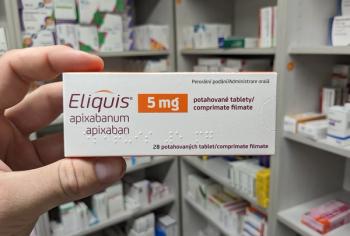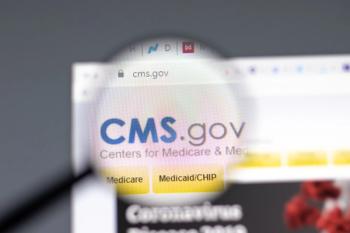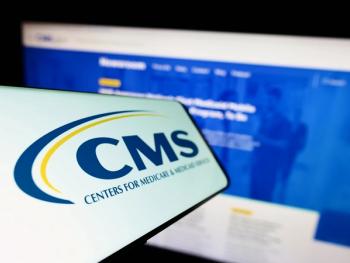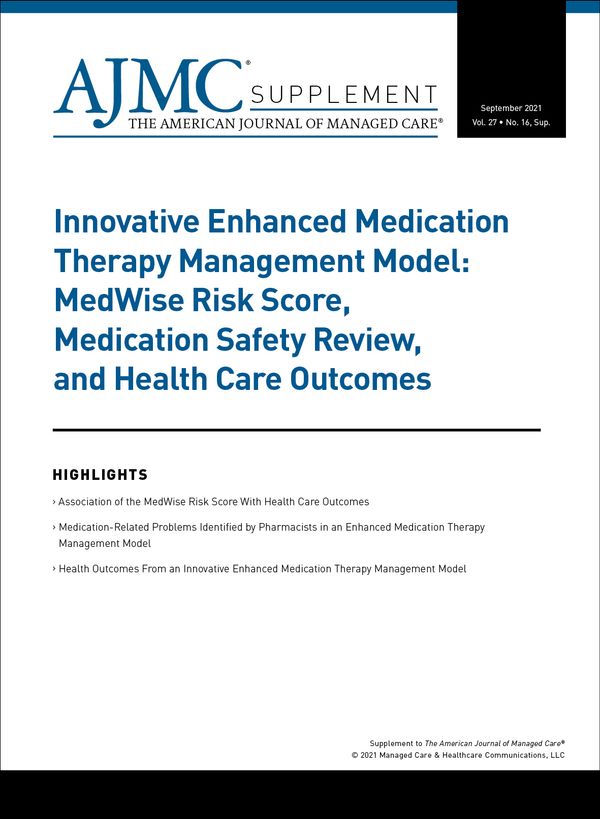
Medicare
Latest News
Latest Videos

CME Content
More News

According to the American Medical Association, blame for the ongoing physician shortage may lie with overly burdensome administrative processes, an antiquated Medicare payment system, and lack of education for residents in primary care and psychiatry.

CMS Administrator Mehmet Oz, MD, MBA, visited AtlantiCare leaders in Atlantic City, New Jersey, to discuss the need for legislative and regulatory reform, as well as the $50 billion Rural Transformation Program.

Apixaban would still cost patients 9 times more through the Eliquis 360 Support program than with commercial insurance.

The CMS Bundled Payment for Care Improvement (BPCI) Advanced model was successful at reducing spending for outpatient procedures for patients receiving back and neck except spinal fusion treatments or procedures.

A new survey reveals that 80% of Americans not enrolled in Medicare are afraid that Medicare will not be there when they are eligible to enroll.

Falls can often lead to reduced mobility or long-term disability in adults 65 and older, but there are strategies beyond exercise that can help these patients stay independent longer.

Democratic leaders assert the Emergency Medical Treatment and Labor Act (EMTALA) remains vital for emergency care, countering confusion from recent policy changes affecting abortion rights and patient safety.

The Choose Medicare Act would establish a Medicare Part E that would give employers and the general public the ability to opt into the program.

Medicare Part B drug negotiations in 2028 pose challenges for providers, requiring new payment systems and strategies to ensure patient access, explained H. John Beardsley, MBA, of CoverMyMeds, and Fauzea Hussain, MPH, of McKesson.

Community oncology faces significant challenges from the Inflation Reduction Act's (IRA) drug pricing changes, risking financial stability and patient access to care.

Despite their profound sacrifices, veterans and active military members disproportionately face significant physical and mental health issues stemming from their service, with many struggling to access the affordable and comprehensive care they need.

HHS announces it is taking steps to implement President Trump’s Executive Order on prescription drug pricing. Keep up with the latest moves made in health policy under President Donald Trump's second administration. This timeline will be updated as orders and policy progress.

Physician groups under 2-sided risk–based Medicare Advantage provide care associated with higher quality and efficiency compared with care by these same groups under fee-for-service Medicare.

Enrollment in Medicare coverage without out-of-pocket protections was associated with a higher likelihood of reporting cost and access barriers to care.

Innovative financing and reimbursement models can improve access to cell and gene therapies, addressing cost barriers and improving patient outcomes, said Joe DePinto, MBA, of McKesson.

Expanding Medicare coverage for glucagon-like peptide 1 (GLP-1) receptor agonists could significantly reduce obesity-related health issues, but it also risks adding tens of billions in new costs, highlighting the need for smart policy strategies to ensure access, affordability, and long-term sustainability.

This study found no evidence that hospital employment of physicians resulted in physicians treating sicker patients, undercutting claims that hospital-employed physicians serve a higher-acuity patient mix.

With deadlines looming in 2026 and 2027 for compliance with the CMS Advancing Interoperability and Improving Prior Authorization Final Rule, a survey indicates a concerning lack of readiness among payers and providers to meet the new requirements for data sharing.

This study examined postdiagnosis breast cancer treatment outcomes for Medicare Advantage vs fee-for-service (FFS) Medicare in Ohio and found no significant differences overall but disparities for Black patients with FFS Medicare.

The Inflation Reduction Act (IRA) may be restricting Medicare Part D formularies, increasing patient costs, and stifling pharmaceutical innovation, experts warned at the Academy of Managed Care Pharmacy 2025 annual meeting.

A real-world analysis showed a link between continuous glucose monitor (CGM) distribution channel and outcomes for patients with diabetes.

Debra Patt, MD, PhD, MBA, executive vice president of Public Policy and Strategy for Texas Oncology, said the practice received positive feedback from nurses and patients during a pilot that concluded in February.

Data on care satisfaction, ease managing care, and out-of-pocket spending were the outcomes of interest for this new analysis that investigated the relationship between healthcare utilization and beneficiary experience within traditional Medicare.

Mehmet Oz, MD, the nominee to lead CMS under the Trump administration, testified in a confirmation hearing before the Senate Finance Committee, where he found common ground on improving outcomes through healthier lifestyle choices but encountered repeated questions on potential Medicaid cuts.

The second Trump administration is expected to bring changes to Medicaid, Medicare Advantage, and the health insurance exchanges, as well as highlight the Make America Healthy Again (MAHA) movement, speakers at the Value-Based Insurance Design Summit said.
















